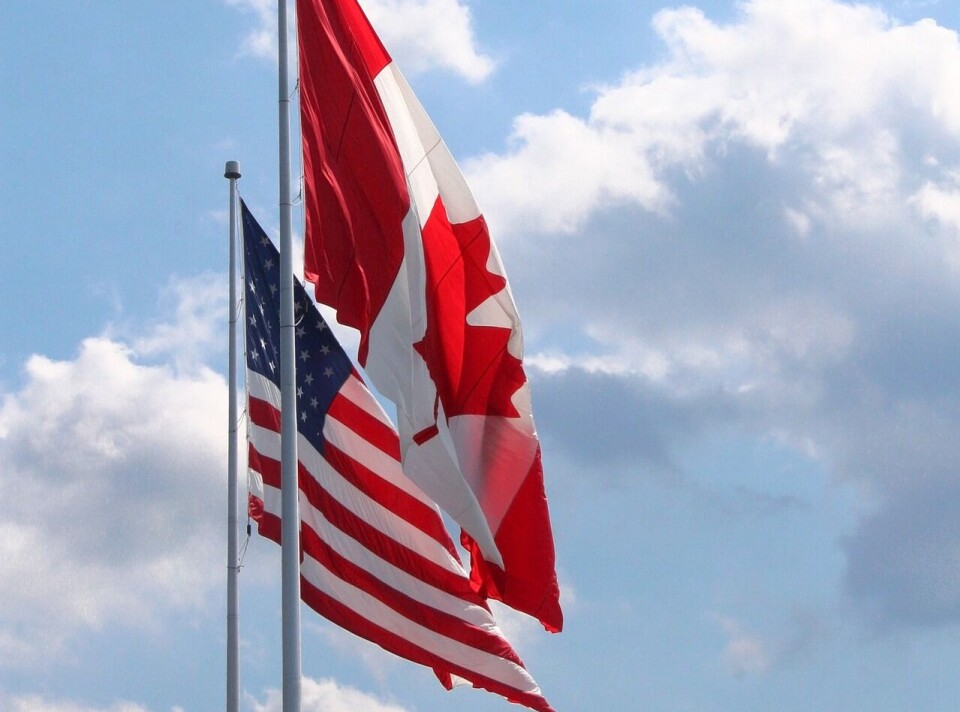
Fish farmers urge Canada's politicians to stop funding 'devious' wild salmon NGO
Newfoundland aquaculture association accuses US branch of Atlantic Salmon Federation of 'sliding funds across the border' to influence MPs about salmon farming
The Newfoundland Aquaculture Industry Association (NAIA) has urged Canada’s provincial and federal governments to end all grant funding to the Atlantic Salmon Federation (ASF) and suspend its charitable status.
The call comes amid claims that a National Marine Protected Area (NMCA) proposed by the federal government’s Parks Canada department could threaten aquaculture and fishing activities. Newfoundland and Labrador Premier Andrew Furey and NL fisheries minister Elvis Loveless are among politicians who want Parks Canada to redraw the boundaries to safeguard those industries.
The NAIA says the federal government, Parks Canada, and the Department of Fisheries and Oceans (DFO), are being lobbied by activists including the ASF, the Ecology Action Centre, and others who are willing to jeopardise local food security and employment by destabilising economic opportunity to attract funding donors.
The Atlantic Salmon Federation is far from Atlantic Canadian – its major donors are wealthy Americans living in big US cities
Newfoundland Aquaculture Industry Association
“The Atlantic Salmon Federation is far from Atlantic Canadian – its major donors are wealthy Americans living in big US cities. ASF hosts lavish New York City events and invests millions in political lobbying and sensational campaigns claiming the need for funds for wild salmon conservation projects,” said the NAIA in a press release.
“Charity Intelligence Canada, a national organisation that assists the charitable sector in being more transparent, reports that in 2023 ASF Canada took in $2.8 million (£1.54m / US $1.96m) in “international donations” from the US while only $830,000 came from Canadian donors. ASF’s 2023 Impact Report lists Yvon Chouinard, the founder of Patagonia clothing, as a “platinum benefactor” donor of more than $100,000. Chouinard also happens to be an investor in Nova Scotia land-based salmon tank farming company Sustainable Blue. The American chapter of ASF is sliding US funds across the border to influence Ottawa politicians and negatively impact Newfoundland and Atlantic Canadian jobs and communities where ocean salmon farming has existed for decades.”
The NAIA said New Brunswick-based ASF Canada spent just CAD 258,000 on “wild salmon watersheds” in all of Canada last year.
'Refused to supply details'
“When ASF was asked last week for a list and expense amount of their 2023 research and conservation programmes in each Atlantic Canadian province, ASF refused to provide details. The reality is that they are fundraising off the backs of hard-working Atlantic Canadians in the seafood industry while spending very little on actual wild salmon conservation projects in Newfoundland and Atlantic Canada,” said the NAIA.
“Provincial and federal governments should end all grant funding to the Atlantic Salmon Federation. ASF Canada received $687,000 in government funding representing 21% of total revenues in 2023, while the NGO sits on $5.7 million in reserve funds. The federal government must immediately suspend the charitable status of ASF and end its support of ASF’s campaign against Newfoundland food security through local salmon farming production.
There is nothing charitable about the dishonest, outdated, inaccurate claims ASF continues to promote about the aquaculture industry. ASF donors should also be asking critical questions about how their funds are being used
NAIA
“Non-governmental organisations of this devious nature who claim to be charities should be legally bound to function independently of any government and should not receive government grants from taxpayers’ money. There is nothing charitable about the dishonest, outdated, inaccurate claims ASF continues to promote about the aquaculture industry. ASF donors should also be asking critical questions about how their funds are being used.”
The NAIA said ocean salmon farming is the most environmentally sustainable form of animal protein farming in the world, with the lowest carbon footprint, adding that “time and time again, science has shown that aquaculture does not negatively impact lobster and has a minimal impact on wild salmon and other species”.
Following science
“We are appreciative that our local Newfoundland and Labrador elected representatives follow fact and science. Protecting our oceans should be the common ground on which the industry, government and environmental NGOs agrees and aligns,” said the NAIA. “It is shameful that ASF and others continue to conduct misinformation campaigns, which muddy the dialogue to mislead stakeholders, influence politicians, and ultimately attract the donations they rely on to fund their egregious campaigns.”
Charity Intelligence Canada’s report on ASF Canada can be read here. According to the report, ASF Canada spent CAD 2.2m on research and CAD 2.1m on “conservation” projects, a category that includes political advocacy. The US-funded NGO also spent CAD 706,000 on publishing reports and running education programmes “to engage Canadians”.























































